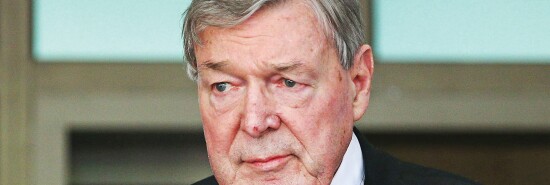
George Pell, 1941-2023
Philip Terzian
Whatever posterity makes of the crisis of sexual abuse that has roiled the Roman Catholic Church for the past few decades, it will have to reckon with the startling saga of Cardinal George Pell, Australia’s most prominent Catholic churchman, who died last week in Rome, age 81.
The onetime archbishop of Melbourne and Sydney, confidant and adviser to Pope Benedict XVI, and trusted Vatican administrator under Pope Francis, Pell was the Vatican’s dynamic financial “czar” when, in 2017, he voluntarily returned to Australia to face criminal charges that, as archbishop two decades earlier, he had sexually abused two choirboys (one of whom had since died of a drug overdose) in the sacristy of St. Patrick’s Cathedral in Melbourne.
When he was found guilty two years later and sentenced to six years in prison, the 78-year-old Pell became the senior Catholic cleric to be convicted and imprisoned for child sexual abuse. Handcuffed on his transfer to jail, held in solitary confinement, and prevented from celebrating Mass for more than a year, Pell’s conviction was overturned in 2020 after an appeal to Australia’s High Court, which said there existed a “significant possibility that an innocent person has been convicted because the evidence did not establish guilt to the requisite standard of proof.”
The High Court’s opinion reflected widespread public unease about the substance of the case. An accusation of abuse had been taken by prosecutors as proof of abuse; there was no forensic evidence nor evidence of past patterns of misconduct; and as a blunt, plain-spoken advocate of Catholic orthodoxy, during his trial, Pell was, in the words of London’s Daily Telegraph, “demonized by sections of the [Australian] press.”
He returned to Rome, and retirement, but only with partial vindication. While supporters maintained that his conservative views on doctrine and his efforts to reform the church’s finances and shake up the Vatican hierarchy had combined to make him a scapegoat, others lamented that the High Court’s decision emphasized the difficulties in proving child sexual abuse beyond a reasonable doubt in the criminal courts.
Pell’s journey to renown and notoriety was picturesque. His father, a onetime professional boxer, was a lapsed Anglican, while his Irish mother was a devout Catholic. Tall and athletic, with a deep, resonant voice and engaging manner, he came close in high school to signing a contract to play professional Australian rules football but, almost at the last minute, chose to become a priest. In 1997, he told his biographer that “I feared and suspected and eventually became convinced that God wanted me to do His work, and I was never able to escape that conviction.”
His size, sound, and outsize Aussie personality did him no harm. After training for the priesthood at an Australian seminary and the Vatican’s Pontifical Urban University, he earned a doctorate in church history at Oxford University while serving on weekends as the Catholic chaplain at Eton College, the elite English secondary school. He returned home to Australia in the early 1970s, where his rise was rapid: He served in urban and rural parishes and, after being appointed as the rector at his old seminary, swiftly transformed the curriculum and replaced most of its liberal faculty with teachers more closely aligned with his own beliefs and the vision of Catholicism emerging under Pope John Paul II.
He was appointed auxiliary bishop in Melbourne in 1987, promoted to archbishop 10 years later, and became the archbishop of Australia’s most important diocese, Sydney, in 2001. Pope John Paul II then appointed him as a cardinal two years later, and Pell was widely touted as a possible successor to his patron.
Pell’s forthright and, at times, undiplomatic style (“rather direct,” as he admitted) earned him legions of admirers as well as impassioned detractors. But it also prompted Pope Francis, in 2014, to appoint him to the new post of prefect for the economy to reform the Vatican’s tangled, opaque, and scandal-ridden finances. And he very nearly succeeded, making new friends and new enemies in Rome, until his own scandal brought his strenuous efforts, and his priestly career, to an abrupt end.
Philip Terzian is a contributing writer to the Washington Examiner magazine.
